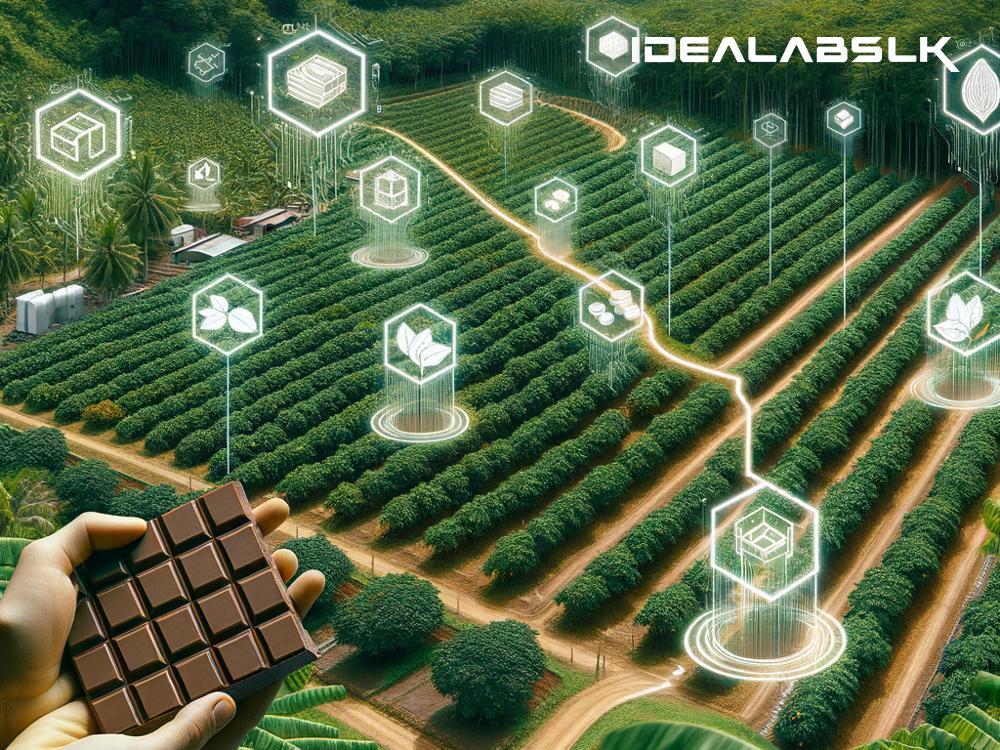The Sweet Spot: How Blockchain Brives Ethical and Transparent Cacao Sourcing
In a world increasingly concerned with sustainability, fair trade, and transparency, the journey of our favorite treats from farm to table is under more scrutiny than ever. Chocolate, a universal symbol of indulgence and joy, is no exception. Behind every smooth, melt-in-your-mouth piece is a story of how cacao beans were cultivated, harvested, and transformed. However, not all these stories are sweet. Issues such as unfair pay, child labor, and environmental harm tarnish the production of cacao. Here's where blockchain technology steps in, promising a future where indulging in a chocolate bar doesn't come with a side of guilt.
Unwrapping the Problem
Cacao, the primary ingredient in chocolate, predominantly comes from West Africa, Latin America, and parts of Asia. Smallholder farmers in these regions often face exploitation. Buyers might underpay them, unaware consumers continue to support unethical brands, and the middlemen profit the most. Moreover, the lack of traceability makes it difficult for companies claiming to source ethically to prove their chocolate is truly guilt-free.
The Blockchain Solution
Imagine a ledger, not the kind you'd find dusty and forgotten on a bookshelf, but a digital one, accessible by anyone, anywhere, and impossible to tamper with. That's blockchain. At its essence, blockchain is a secure, transparent way of recording transactions. When applied to cacao sourcing, it can revolutionize how we ensure ethics and transparency.
How Does It Work?
When a cacao farmer sells their beans, the sale is recorded on the blockchain. This includes the amount of cacao, the price paid, and who bought it. As these beans travel, from being processed into chocolate to hitting the shelves, each step is noted on the same digital ledger.
What makes this powerful is that once something is added to the blockchain, it can't be changed or deleted. This means anyone, from the farmers to you, the consumer, can trace the journey of your chocolate bar back to its origins. You can check if the farmers were paid fairly, if the cacao was grown in an environmentally friendly manner, and if any claims made by the brand, like being "organic" or "fair trade," are true.
The Sweet Benefits
-
Fair Compensation for Farmers: With blockchain, transactions are transparent. This transparency can pressure companies to pay fair prices since now anyone can see what the farmers are earning.
-
Eliminating the Middleman: Blockchain can create a direct link between farmers and manufacturers or even consumers. This directness can increase the farmer's share of the profit.
-
Empowering Consumers: Consumers can use their purchasing power for good. Blockchain allows them to verify the ethical claims of the chocolate they buy, encouraging more informed and ethical purchasing decisions.
-
Sustainable Practices: Blockchain can track not just the financial transactions, but also how the cacao is grown, its impact on the environment, and adherence to sustainable practices. Brands committed to sustainability can prove their dedication.
-
Boosting the Economy: In communities where cacao farming is a major source of income, better pay and conditions can lead to economic growth, better education, and improved infrastructure.
Real-world Examples
Several companies are already implementing blockchain for ethical sourcing. For instance, a well-known chocolate brand partnered with a blockchain service to trace the cacao from Ivorian farms to the store, ensuring fair compensation and practices. Another example is a startup that uses blockchain to connect consumers directly with cacao farmers, allowing farmers to earn more and consumers to understand where their chocolate comes from.
A Future as Sweet as Chocolate
Blockchain in cacao sourcing is still in its early stages, but its potential is immense. By promoting fairness, transparency, and sustainability, blockchain could fundamentally change the story behind our chocolate bars.
However, technology alone isn't a magic solution. It requires participation from all parties involved in the chocolate industry, from the farmers to the consumers. By supporting companies that prioritize ethical sourcing through blockchain, we can all contribute to a future where every chocolate bar brings not just joy to us but also to those who made it possible.
So, next time you savor a piece of chocolate, remember that it could represent a beacon of hope and a step towards a more ethical and transparent industry. Blockchain technology, though complex in its workings, offers a simple promise: a world where indulging in chocolate is as guilt-free as it is delicious.

